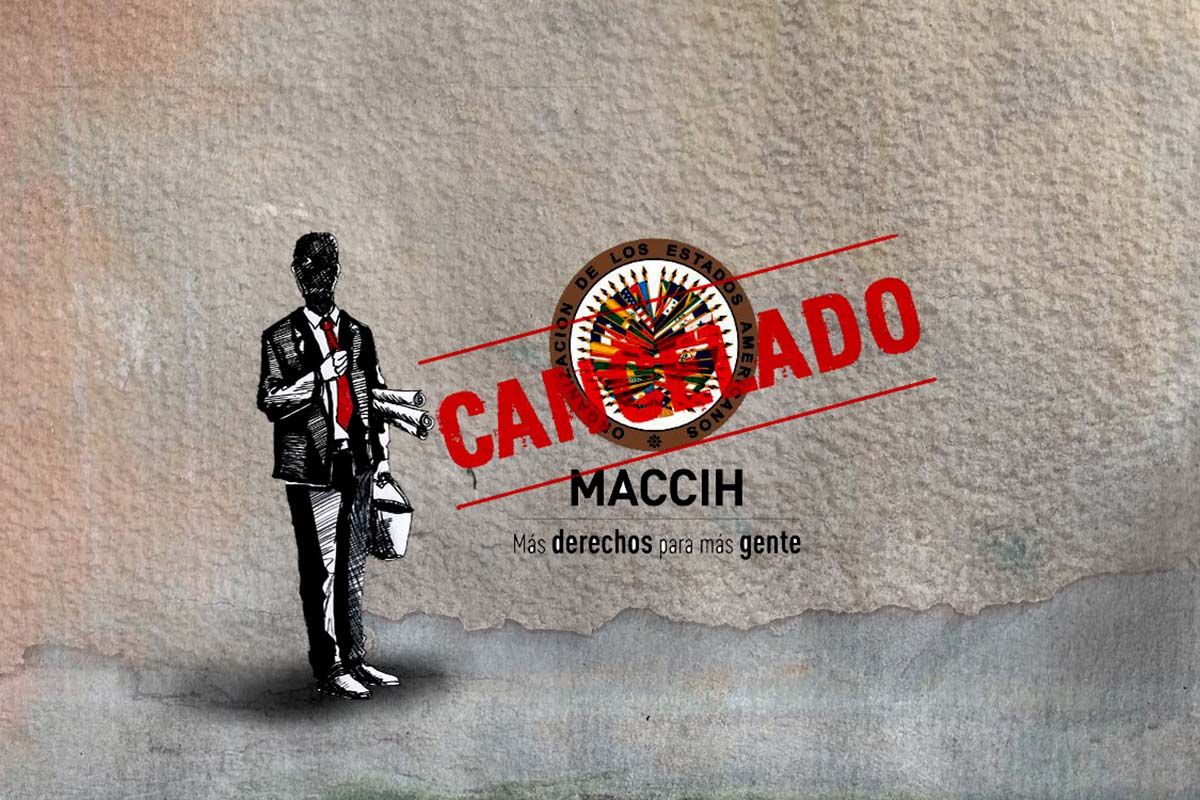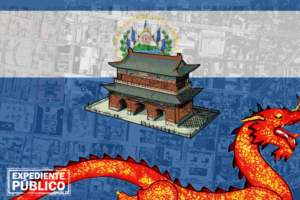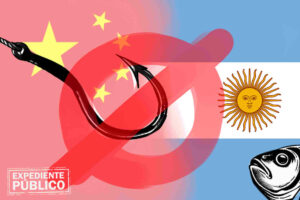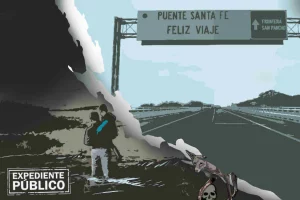Establishing the Mission to Support the Fight Against Corruption and Impunity in Honduras (Maccih) was crucial to the gradual creation of a comprehensive system to break up the country’s corruption networks—allegedly comprising businesspeople and drug lords, but above all, very powerful politicians—in what the German nongovernmental organization Transparency International considers one of the most corrupt countries on the American continent.
Maccih was set up in Honduras on January 19, 2016, as part of a signed agreement between the Honduran government and the Organization of American States (OAS), resulting from citizen protests starting on May 29 of the previous year about corruption discovered in the pension system and expressed in massive “torchlight marches” every Friday. Demonstrations against corruption at the Honduran Social Security Institute were launched in Tegucigalpa by a hitherto unorganized civil society group called Indignant Youth, which triggered collective indignation in the country demanding an agency similar to the UN-supported International Commission against Impunity in Guatemala (Cicig).
For the first time in decades, the Honduran middle class took to the streets for three months to demonstrate their discontent and demand punishment for those who had ransacked the Honduran Social Security Institute, embezzling some 6,4 million lempiras (approximately US $256 million) through a shell company.
The agreement to create Maccih for a four-year period with the possibility of renewal through an exchange of notes between the parties was signed in January 2016 by OAS Secretary General Luis Almagro and Honduran President, Juan Orlando Hernández. During its mandate, Maccih investigated prominent politicians, including former presidents and legislators, and even a former first lady, which is why the Mission came into the cross hairs of corrupt officials.
On January 17, 2020, the OAS General Secretariat issued a statement announcing that, in the absence of a renewed agreement with Honduras’ government, Maccih would cease functioning. “Unfortunately, it was not possible to reach the agreements required for the renewal of the Mission’s mandate,” the OAS statement declared, “which is why Maccih will end its functions on January 19, 2020.” It emphasized that the conclusion of the work is «a negative step in the fight against corruption and impunity» in this Central American country.
The OAS statement was released hours after one from the Honduran government, ending the relationship and promising it would continue fighting the scourge of corruption from its own comprehensive system. However, the OAS statement hints that one of the points of contention for non-renewal was the Special Fiscal Unit Against Impunity and Corruption (Ufecic), a section of the Public Ministry that investigates politicians who have acted against the law under the protection of impunity.
In announcing the conclusion of the Mission, the Ministry of Foreign Relations said that among the government’s justifications for not signing the agreement are complaints from public officials and also from some of Honduras’ economic sectors expressing their observations and disagreements with the conduct of some Maccih officials. According to the government, these officials were considered to have exceeded their brief under the agreement, leading to claims by the alleged victims that their constitutional rights and guarantees had been trampled on. State institutions also charged that their constitutional and legal faculties and independence of action had been supplanted in matters of criminal justice.
Charles “Chuck” Call, professor of international peace and conflict resolution at the American University in Washington D.C., who has studied anti-corruption missions in Central America, coniders those assessments unfounded. «I don’t understand how they can say that Maccih exceeded its functions; I haven’t heard any example of that. In the Cicig case, people alleged that this agency really did exceed its mandates. It (Macih) was making investigations in lockstep with the Public Ministry.”
Call commented that the Mission played an important role and had quite a strong leader: Juan Jiménez Mayor. “He was involved in politics and understood these issues and he didn’t mince words, although that turned out to be a weakness because he upset many of the elite. For example, he announced the names of the people under investigation. This really upset some businesspeople, as well as the government, and they did everything to reduce its strength.”
Call explained to Expediente Público that mistrust of Luis Almagro’s role led Jiménez to resign in less than two years. Cicig didn’t experience anything as disastrous in its its 12 years in Guatemala.
LACK OF COMMITMENT
Expediente Público spoke in Costa Rica to Claudia Paz y Paz, prosecuting attorney in Guatemala(between 010 and 2014 and now director of the Center for Justice and International Law (Cejil). She maintains that Maccih always acted within the legal framework.
“Sadly, I think this is an excuse to give the public a reason why the agreement wasn’t extended,” she said, “but it doesn’t have any foundation in reality. It’s serious that President Juan Orlando Hernández has decided not to renew the mandate; it says a lot about a lack of commitment and political will to get to the bottom of corruption cases.”
According to Paz y Paz what remains now is to accompany the cases that have already been initiated in the Honduran legal system so that justice can be served. The former prosecutor added that she believes the Mission had the support of the OAS and that an independent international force is needed to galvanize these processes at the national level, as it’s hard to believe that those who are profiting from corruption are going to investigate themselves.
“Although Cicig and Maccih had different work methodologies and competences, they had a common purpose: the fight against corruption and impunity, and this fight is very important in our countries,” she said. “Both Honduras and Guatemala are very poor countries and it’s terrible that many public contracts are obtained through gratuities originating from illicit financing. I think this is something that happens in both countries. Payments are made from undeclared electoral funds and later recompensed with contracts for public works.” “I think it’s extremely serious, especially as in these poor countries this money they misappropriate could be invested in health, education and security. Clearly, the non-renewal of mandates for Cicig in Guatemala and Maccih in Honduras only shows the lack of will in the highest authorities—in this case the presidents of Guatemala and Honduras—to fight against corruption and impunity.”
Speaking for Cejil, she said “the renewal was very important to us. We accompany the work the Mission has done and deeply regret that this renewal didn’t happen.”
The former prosecutor ended the interview by affirming that independent journalism plays a crucial role in Honduras in accompanying these cases and, especially, the people, who have a legitimate demand that such events not continue to occur.
Maccih’s work
The Maccih agreement established that it should work with the institutions responsible for preventing, investigating and punishing acts of corruption; propose legal and institutional reforms within their areas of work and promote mechanisms for accountability to civil society. In order to accomplish its entrusted work, its structure was based on four components: preventing and fighting corruption; criminal justice reforms; political-electoral reform; and public security.
After getting set up, Maccih got to work in April 2016. It began to identify the first corruption cases, while at the same time organizing the creation of a comprehensive anti-corruption legal model accompanied by special courts and the Public Ministry’s new fiscal unit, specialized in fighting corruption and impunity.
While simultaneously working on two fronts—organizing an anti-corruption legal model and investigating identified cases such as the Social Security scandal—Maccih began to uncover how the corruption networks and sub-networks operated in Honduras. The case of the Legislators’ Network was the one that marked its history and the subsequent determination of the corrupt Honduran politicians and businesspeople to bury it. It not only fingered the networks linked to the National Congress and the executive branch but, as it sifted through its work, it came across untouchable political elites and even a former first lady, Rosa Bonilla, wife of f President Porfirio Lobo (2010-2014). The latter was convicted of corruption and sentenced to 58 years in prison, but after the Mission was dissolved, a court of law ordered that she be retried.
Up to May 2019, Maccih brought at least 12 cases to the courts. That was enough for all sectors (politicians, officials, congresspeople, businesspeople, union organizations, legal individuals and entities, NGOs, and others) to feel affected or at least threatened. They formed public, private or mixed alliances to prevent the mandate from continuing, in a widespread conspiracy to stop the fight against corruption and impunity in Honduras.
Some of their actions aimed at slowing down the Mission’s work were evidenced by laws passed in the National Congress aimed at shielding the corrupt and their fraudulent actions. Similarly, two ways of imparting justice were evident in the courts: the first, via the Constitutional Chamber’s resolutions and special prosecution procedures for high-level officials, which favored them receiving differentiated treatment; and the second, via the rulings of the anti-corruption courts, which they tried to get annulled after Maccih’s departure, through poorly underpinned subterfuges.
The cases the Mission uncovered also identified a thread between corruption and organized crime, particularly drug trafficking, through money used to finance political campaigns, as well as opening shell companies as fronts for money laundering. This nefarious connection between crime and corruption emerged in the Maccih investigations conducted together with the Public Ministry’s Special Fiscal Unit Against Impunity and Corruption (Ufecic). Created in 2017, it was eliminated when the Mission disappeared and replaced by what is now called the Specialized Fiscal Unit Against Corruption Networks (Uferco).
The thread Maccih uncovered between politics, corruption and drug trafficking was reflected in the cases brought to court, among them the embezzlement in Social Security, the Legislators’ Network, what came to be known as, Pandora’s Box, the First Lady’s Petty Cash, the Gualcarque fraud case, Corruption on Wheels, and Narco-politics. The Mission was also developing an anti-corruption system, which remains unfinished, for now.
The Mission’s semiannual reports presented to the OAS General Secretariat and Permanent Council and published on their website describe each of the actions implemented in all its components, and their progress and obstacles. They subtly demonstrate a lack of political will to support some of their efforts.
In several of the cases investigated by Ufecic, in collaboration with Maccih, the accused received support from the political sphere and state institutions, particularly legislative reforms that sought to take maximum advantage of the law’s non-retroactivity principle, which benefits those accused and convicted of crimes.
The Legislators’ Network case is perhaps the best example because, protected by a last-mnute legislative move on June 24, 2018, a judge who heard case closed it indefinitely on the grounds of transitory depositions in the republic’s budget, whose legal reform was approved in parliament. While the investigations shook up the political elite and the case was brought to court, the Organic Budget Law (Decree 141-2017) approved in 2018 establishes the inadmissibility of criminal proceedings against officials who have handled public funds until an audit by the High Court of Auditors is concluded, giving this body three years to do it.
This was Ufecic-Maccih’s first case and originated in alleged misappropriation of public funds earmarked for social programs by five congresspeople who used an NGO as an intermediary to embezzle funds for personal purposes. The case that began with five parliamentarians led to the discovery of a larger network of a little over 60, according to the Mission, including the president of the legislative branch, Mauricio Oliva Herrera.
The reform even indicated that the administration of public resources also corresponds to “National Congress and its representatives to request, manage, receive, administer and execute public funds from any source, outsourced or decentralized, allocated to development projects, social aid and strengthening governance and democracy.”
Maccih expressed its discontent because the reform was retroactive and meant that those officials accused of the crime of embezzling public funds could stay blameless.
Meanwhile, in March 2018, the Constitutional Chamber accepted an appeal of unconstitutionality brought by Legislators’ Network defense lawyer against the agreement between Maccih and the Honduran government.
The final ruling of the Chamber establishes that the Inter-institutional Mechanism for Bilateral Cooperation between the Public Ministry and the OAS General Secretariat does not abide by “the standards that this Constitutional Chamber recognizes as valid.” The basis of the attack by these three instruments appears to lie in uneasiness about Maccih’s work of certifying, evaluating and supervising, as seen in the ruling’s 23rd “Whereas”. In its ambiguous ruling, the Constitutional Chamber said the Mission was constitutional but attacked Ufecic by claiming it was unconstitutional.
The Public Ministry criticized the Constitutional Chamber’s ruling and defended the creation of Ufecic, stating that “if the tree [Maccih] is not poisoned, much less are its fruits [Ufecic].” It chose not to comply with this ruling, viewing it has having gone beyond what was stipulated, as Ufecic was never among the arguments filed by the defense in the Legislators’ Network case.
On reading the ruling, it was striking that Virginia Contreras, a member of the Mission in charge of its Public Security Department, said they would “respect” the Constitutional Chamber’s decision, while its new chief spokesperson, Brazilian Luiz Antonio Marrey, remained silent. This was June 1, 2018.
In recent statements to Expediente Público, Marrey’s predecessor, Juan Jiménez Mayor, questioned the legal reasoning supporting the Constitutional Chamber’s ruling. “I was struck by the fact that Maccih welcomed this ruling,” which I think shows a lack of understanding—I don’t want to describe it in other terms—although things never happen by chance in politics. This ruling was the second incident in the dismantling of the Mission because what it basically said was that everything Ufecic was doing was invalid, and disabled it by defining it as unconstitutional.” Jiménez had resigned in February of that same year, after two years in charge of tMaccih, following his charge that OAS Secretary General Luis Almagro was not supporting the Mission’s work.
The dismantling Jiménez Mayor mentioned had gained momentum a month before Maccih was declared constitutional but Ufecic was not On February 13 of that same year the Constitutional Chamber declared inadmissible two appeals of unconstitutionality regarding the reform of the General Budget Law, approved the previous January 20, with the vote of 69 legislators (11 abstained and 2 voted against). The appeals had been presented by the National Anti-Corruption Council and the Association for a More Just Society.
THE OPEN COFFER CASE
The Legislators’ Network case revealed a corruption scheme that involved using foundations and nongovernmental organizations to channel public resources. The Mission and Ufecic extended their investigations of this case to other incidents before the courts such as the so-called Open Coffer case, also initiated for alleged embezzlement of public funds by legislators, who used an NGO as an intermediary to divert funds for personal purposes.
In this case, a different judge acquitted 11 of the 21 accused, , while the rest would continue with the due process indicated by law. The Public Ministry would have appealed this decision, but once again the Congress blocked the way by approving another legislative shield.
On October 15, 2019, the Congress passed what it called the Special Law for the Management, Assignation, Execution, Liquidation and Accountability of Public Funds for Projects of a Social Order, Community, Infrastructure and Social Programs (Decree 116-2019). Article 16 of this law contains a rehash of the reform already attempted with the Legislators’ Network case and for the same purpose: to legislatively block ongoing criminal procedings against Honduras’ corrupt political elites.
Although the Constitutional Chamber granted Ufecic a writ of protection in the Open Coffer case, which enabled the use of evidence ruled inadmissible by the judge during the preliminary hearing, the new decree (116-2019) would no longer only cover cases derived from the execution of the Congress Departmental Fund, but also all use of public funds for social projects. The aim was to retroactively favor a greater number of potentially involved officials and individuals.
SHIELD
Another example of the interaction between the two mechanisms—special procedure and legislative blocking—can be found in the Immunity Pact case, motivated precisely by the attempts to shield those accused in the Legislators’ Network case in such a way that it ended up altering the content of a decree approved by the full National Congress.
In this context, National Congress secretary Tomás Zambrano was one of the accused but his charge was later dismissed by an ad-hoc court of appeals. Some time later, this National Party representative appeared in the press as the most prominent sponsor of a reform to the Organic Law of the Legislative Branch, (Decree No. 363-2013), which ensures the impunity of legislative representatives for illegal acts committed in the performance of legislative functions.
This law was reformed by the addition of Article 10-A, which defines the legislative function for legal purposes and then states that this “does not entail personal, criminal, civil and administrative responsibility for legislators who participate in said parliamentary process.”
The legislators argued before journalists from different media that they approved this reform because, given the Ufecic-Maccih cases and the recurring to court trials, nobody wanted to sign minutes or pronouncements anymore for fear of being prosecuted.
Decree 116-2019 (Accountability Law for Social Programs) and the reform of the Organic Law of the Legislative Branch (impunity in the legislative function) have been designed to affect the continuation of the Open Coffer and Immunity Pact cases, as well as to stop accusations against the Legislators’ Network, Pandora and 70 investigations that were ongoing, as was announced by prosecutor Javier Santos, then head of Ufecic, now called the Specialized Fiscal Unit Against Corruption Networks (Uferco).
“What I can say is that there are many lines of investigation that would be at a standstill until the Superior Court of Accounts (TSC) decided if there is responsibility or not,” said prosecutor Santos.
He added that “the cases being prosecuted, such as Pandora, Open Coffer and the Legislators’ Network, have been on appeal for more than a year. It seems they were waiting for this reform, which was done a week ago.”
He disclosed that “these cases exceeded the time limit established in the Criminal Procedural Code for appeals to be resolved…. It’s useless for us to work 12 hours a day and even over weekends if the whole system isn’t committed, and it seems that there’s no will to fight against corruption in this country.”
In particular, the Honduran Legislature relapsed in its will, not only by using Decree 116-2019 to protect the political class threatened by the Public Ministry’s accusations, but also by reestablishing the Departmental Fund. This mechanism turns Congress members into administrators of projects and public funds and is at the root of at least two of the cases brought by Ufecic; and also apparently of a large number of pending lines of investigation. Perhaps the first two cases brought by Ufecic-Maccih are those that best summarize the differences between the two prosecution systems.
In addition to the obvious factor involved in President Hernández and his political associates holding onto power, the key to not institutionalizing the fight against corruption is in the agencies and mechanisms of justice, revealing a fundamental question of greater or lesser cooptation in the ways judges are appointed in each system.
With respect to the legislative blockade, the future of the new Penal Code (Decree 130-2017) merits special mention. If this this regulation comes into force with the currently approved text, it will have a broad impact on the cases prosecuted by Ufecic as well as on those mentioned by Maccih in its in its legal analysis of the new Code published in August 2019, Maccih lays out its concerns both about the general part of the law and about the configuration of crimes in the special part, among them the elimination of the required cooperator and the reduction of penalties for various crimes against Public Administration.
Under these circumstances, criminal acts committed before 2010 could not be prosecuted in some cases.
In addition, Maccih points out many other dubious criteria in the new Code, including changes in the classification of assets laundering with respect to the special law that currently defines it or the exemption from criminal responsibility for fraud if one reimburses the amount embezzled. These actions would be part of a broader scheme, including control of the auditing bodies, which has been taking place since 2007, and the concentration of financial and budgetary decisions in the presidency of the Republic, which many sectors describe as “shielding corruption.”
This phenomenon would also be characterized by having a defensive strategy involving coherent action and across-the-board response to threats, regardless of party differences, and the use of a nationalist discourse to reject foreign “interference” on matters of justice.
Maccih’s work not only disturbed the political elites, but also the business sector, which reacted with annoyance to some announcements by the Mission’s then chief, Juan Jiménez Mayor. In July 2017, Honduran businesspeople questioned Jiménez Mayor following his announcement, weeks earlier, of an investigation of bankers—partners of Desarrollos Energéticos S.A. (DESA)—as suspects in the murder of the environmentalist Berta Cáceres and of money laundering when forming a company that would have received benefits from public officials.
According to Jiménez Mayor, DESA received authorization to operate and won a contract to sell electricity without having an environmental permit approved for the construction of a hydroelectric dam in the western Gualcarque River located 140 miles from Tegucigalpa, which supplies indigenous communities.
The reason political class is acting as a bloc is probably that to six of Honduras’ ten legally registered parties have at least one militant as a defendant in the cases brought by Ufecic-Maccih. Furthermore, in the cases of asset forfeiture, particularly in the process derived from Pandora, the actual headquarters of the two traditional parties, Liberal and National, have been compromised.
Of the four remaining parties, Denis Armando Castro Bobadilla, the leader of the Patriotic Alliance party’s congressional bench and vice president of the Congress itself, has played a crucial role in the attempt to reform the laws on money laundering and forfeiture of assets, with the alleged intention of benefiting the main defendant in the First Lady’s Petty Cash case. Furthermore, an investigation by the digital magazine Revistazo revealed that four years ago Castro Bobadilla was affected by the seizure of a company in which he was a partner, which is why, according to this publication, Castro himself could benefit from the reform he is proposing, rescinding the seizure of his company or obtaining compensation for it.
In addition to maintaining two prosecution systems, one of them much more vulnerable to political influences, the alleged active networks also benefit from the fact that the more independent mechanism lacks suitable instruments to do its work. That’s why the Public Ministry is attacked for allegedly violating fundamental rights or for fighting the corrupt through the legal system’s anti-corruption courts which, according to its detractors, lack legitimacy by being special or ad hoc courts, among other arguments.
The defense for the defendants in the cases opened by Ufecic-Maccih has managed to impose its criteria on the media’s agenda, where they appear to have a platform, as opposed to the prosecution’s arguments which, by their very nature, have less media appeal than the former.
THE DISMANTLING OF THE ANTI-CORRUPTION PROSECUTOR’S OFFICE
Ufecic, created in February 2017, was regulated by the Inter-Institutional Mechanism for Bilateral Cooperation between the Public Ministry and the OAS General Secretariat, signed a year later than the Maccih agreement.
The action protocol that gave life to Ufecic established a comprehensive criminal investigation and prosecution method, through joint teams of its prosecutors and those of Maccih. It had a relatively low impact because they failed to procure the necessary legal instruments to reinforce their objectives, against the Law of Effective Collaboration and the Law for the Classification of Public Documents related to Security and National Defense, popularly known as the Official Secrets Law.
This undermined its ability and effectiveness for extending investigations to key figures in the political elite, historically linked to governmental and private corruption in Honduras, who, as mentioned above, opted to push through initiatives to reinforce impunity and limit the Mission’s accusations.
On January 23, 2020, a week after the Mission’s mandate ended, the Prosecutor’s Office announced the creation of the Specialized Fiscal Unit Against Corruption Networks (Uferco), replacing Ufecic as the fiscal arm that brought cases to court. After Ufecic closed, iprosecutor Luis Javier Santos, saw Expediente Público in his office in Tegucigalpa.
The creation of Ufecic as the special prosecutorial arm of Maccih enabled them to have international accompaniment and a team pf fiscal experts, in fact, the last interim spokesperson for the Mission, Ana María Calderón Boy, was the first international prosecutor who started her work shaping and working hand in hand with Ufecic.
Prosecutor Santos recalled that this international support enabled them to have a team of 25 experts provided by the Mission, which Uferco doesn’t have, so its work load will triple. “If we resolved a case in three months, it’ll now take us nine months or much more, because we are very few and we have four trials on the agenda, just in this year. This means that we have to be present throughout the legal proceedings and we are just eight prosecutors. There are trials where two prosecutors aren’t enough.”
Santos believes that Maccih wasn’t renewed because there was no political will in either the government or in the OAS General Secretariat itself. His own commitment remains firm in the fight against corruption, even though it will be more difficult without the accompaniment of the Mission, which protected the prosecutors to some extent.
The fight against corruption and impunity in Honduras will not only be affected by the departure of Maccih but also by the new Penal Code entering into force on May 2020, which various sectors have called “the impunity code.”





